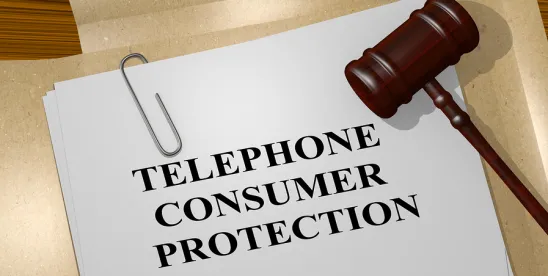Well, this one is spicy.
Jeff Lohman. A name known to many in TCPAWorld. We’ve litigated unknown dozens of cases with the guy. Heck he was on my podcast once.
According to one court in Virginia, however, Mr. Lohman may have been involved in a fraudulent scheme to manufacture defaults and TCPA suits against unsuspecting lenders. The case is Navient Sols., LLC v. Law Offices of Jeffrey Lohman, P.C., Civil Action No. 1:19-cv-461 (LMB/TCB), 2020 U.S. Dist. LEXIS 42720 (E.D. Va. March 11, 2020) and it is an absolute doozy.
According to Court filings—which have resulted in a prima facie finding of a criminal/fraudulent scheme but no final determinations on the merits— Lohman’s office encouraged student loan borrowers to default on their debts for the express purpose of manufacturing TCPA suits, which would then be leveraged to force cancellation or reduction of those debts. Specifically, the borrower would (allegedly) be convinced to stop making payments on the account and then (allegedly) use a script provided by Lohman’s office to kind-of-sort-of-almost-maybe-but-not-quite revoke consent while recording the call. The caller would inevitably continue to make calls in light of the confusing instruction and the debtor would not answer the phone again. Then, after enough “post-revocation” calls were received, a TCPA lawsuit would be filed.
Lohman filed a huge volume of TCPA suits in 2018 many, allegedly, in furtherance of this scheme. Whatever the facts, he apparently knocked on Navient’s door a few too many times because it sued him last year for RICO violations contending that the “scheme” of encouraging debtors to default to create TCPA lawsuits was a sort of wire fraud.
It might be right.
In the first non-dispositive but certainly substantive brush on the issue the court agreed with Navient and concluded that Lohman’s participation in the alleged “scheme” would, indeed, qualify as a crime or fraud overcoming the attorney-client privilege he would otherwise maintain in his communications with his clients. Specifically, the Court found:
The Court is satisfied that Plaintiff has produced sufficient evidence to surpass its prima facie burden showing that Lohman committed mail/wire fraud in perpetuation of the alleged scheme.
Wow.
The Court goes on to determine (again at least prima facie):
This scheme resulted in substantial monetary losses to Plaintiff because customers stopped paying their student loans, and Plaintiff was required to defend and settle numerous TCPA lawsuits, cancel hundreds of thousands of dollars in student loan debt, and pay the attorneys’ fees and costs incurred in defending these underlying TCPA lawsuits.
Importantly, the Court rejected Lohman’s defense that he was merely engaging in ethical and permissible legal services for his client. True he was engaging in lawful conduct, but that conduct was taking place—in the Court’s view—as part of a larger fraudulent scheme. So the lawfulness of the representation he was offering could not launder the sins of the broader effort to defraud: “Despite the client possessing the privilege, an attorney cannot hide behind his client’s assertion of the AC privilege when there is evidence showing that the attorney was involved in a criminal or fraudulent scheme. For these reasons, even Lohman’s clients’ assertion of the AC privilege must fall.”
As a result of this finding, Lohman’s attorney-client privilege objections are overruled and he must produce responsive documents reflecting communications between him and his clients related to this “scheme.” What an incredible treasure trove of information might be headed into Navient’s hands!
To make matters more interesting/painful– depending on your perspective– the Court stated its intention to sanction Lohman, finding that his tactics in opposing the motion to compel cause unnecessary cost and delay. Eesh.
Notably, although this is not the first RICO case TCPAWorld has seen, it appears to already be the most successful. The Court’s determination that encouraging consumers to default on student loans so as to invent TCPA suits might, in context, constitute a form of wire fraud is amazing. Although the theory has been expressed a few times in complaints, this is the first time it has really hit home. And to earn a determination that the crime/fraud exemption applies here so as to obtain emails between Lohman and his clients is really quite remarkable.
My hat is off to Navient and its counsel on this one—We will keep a very close eye on this one.




 />i
/>i

